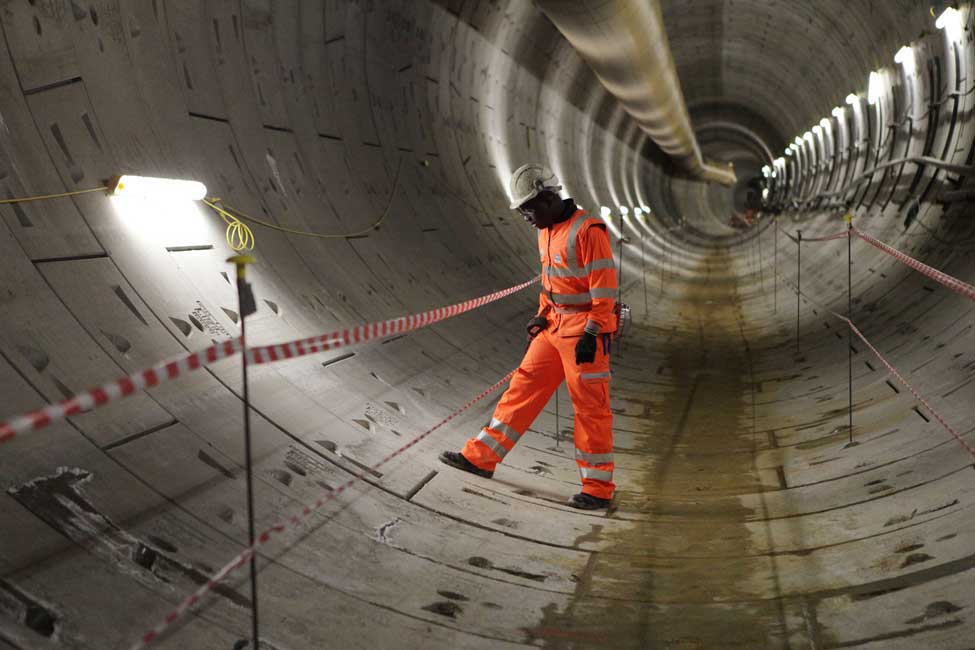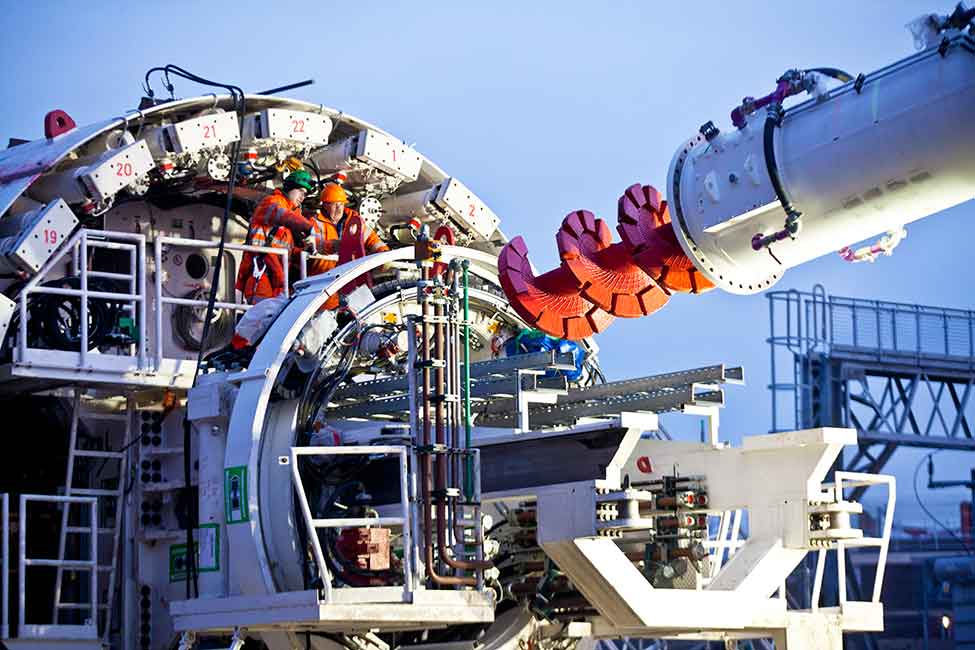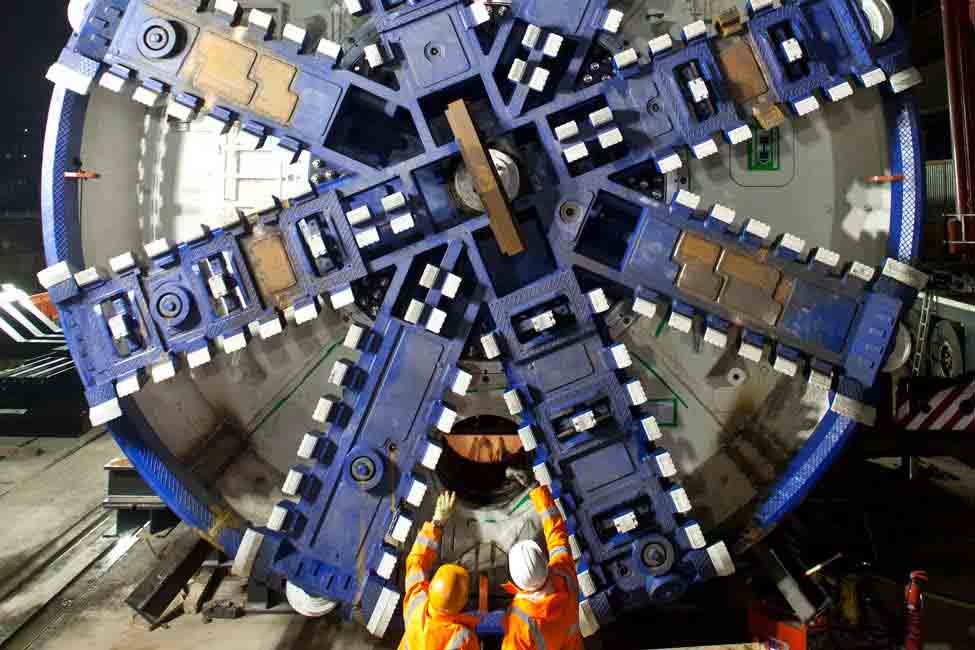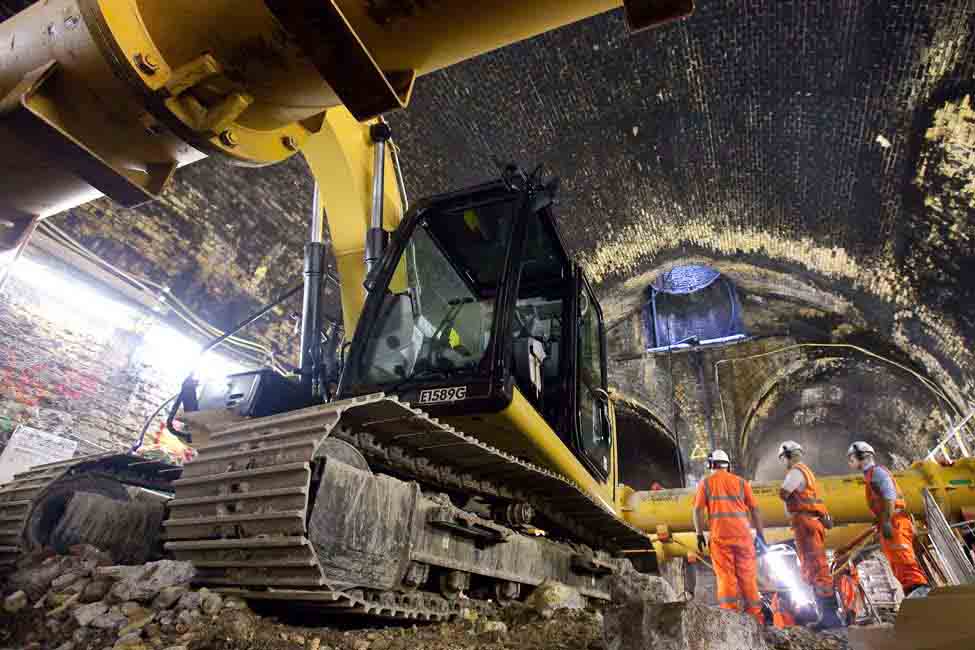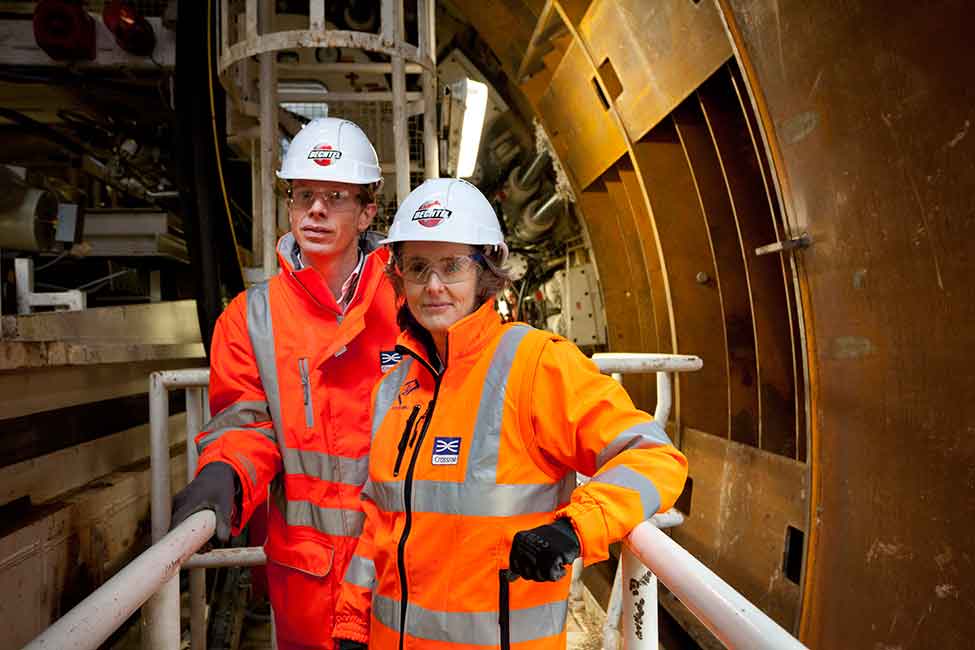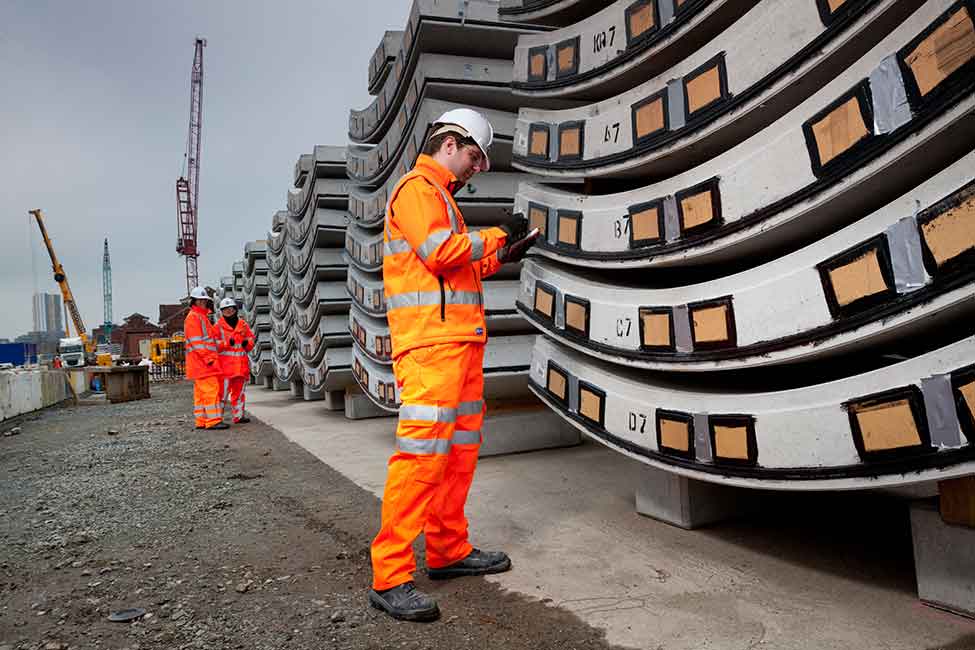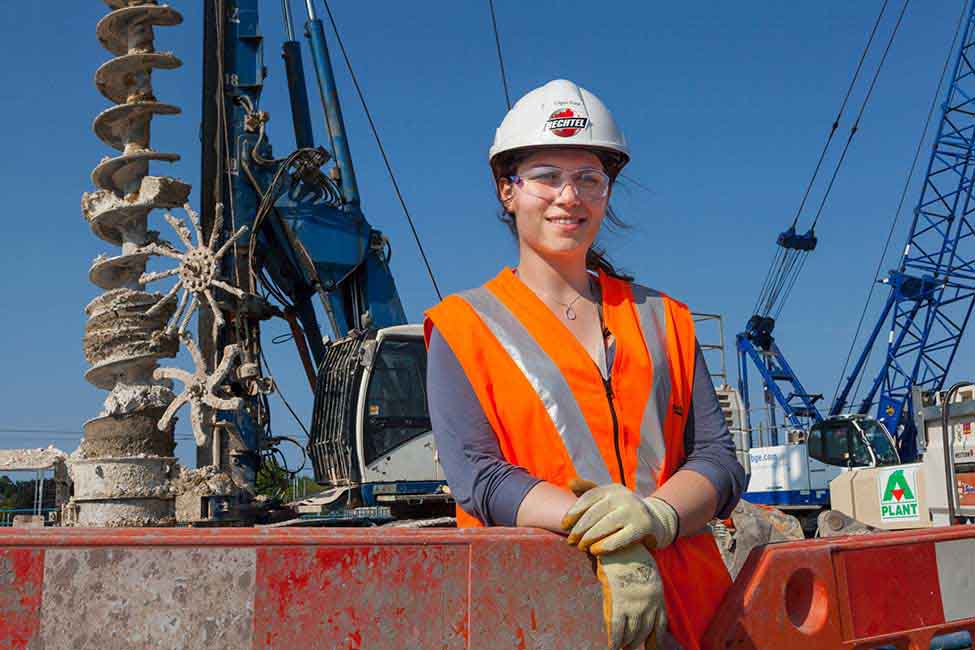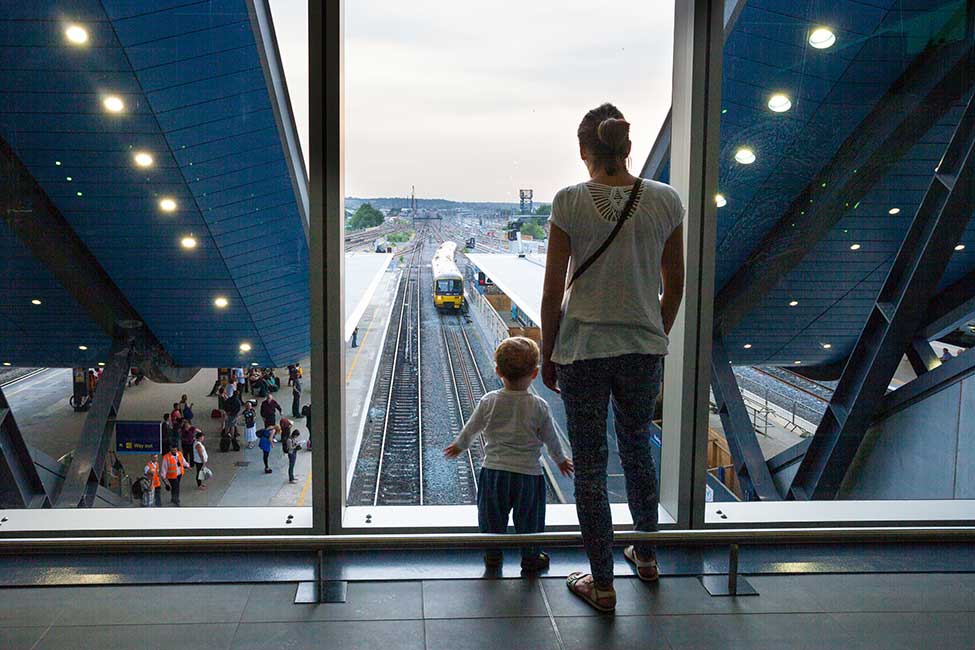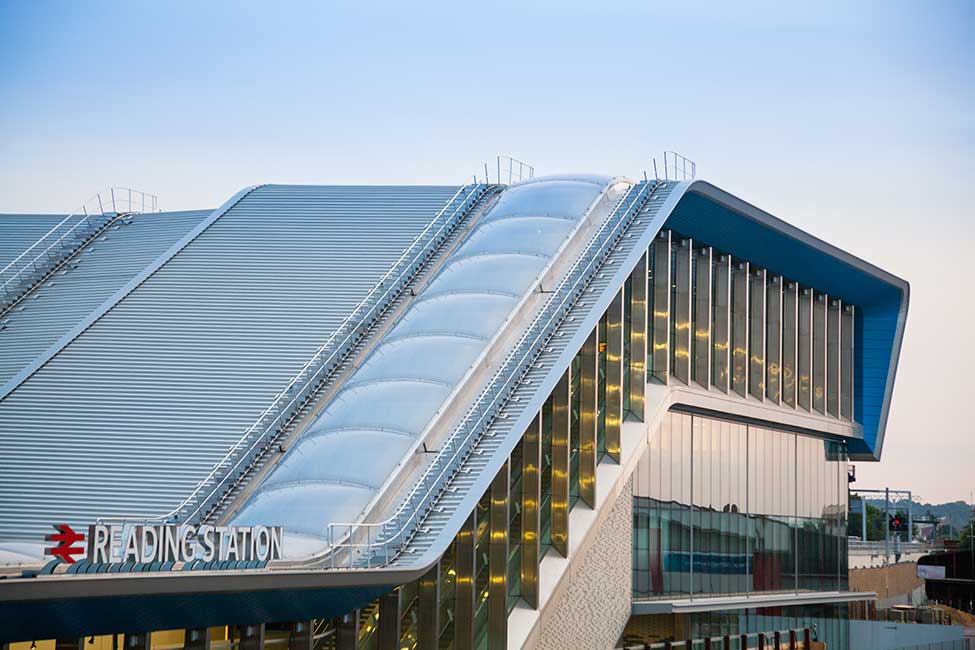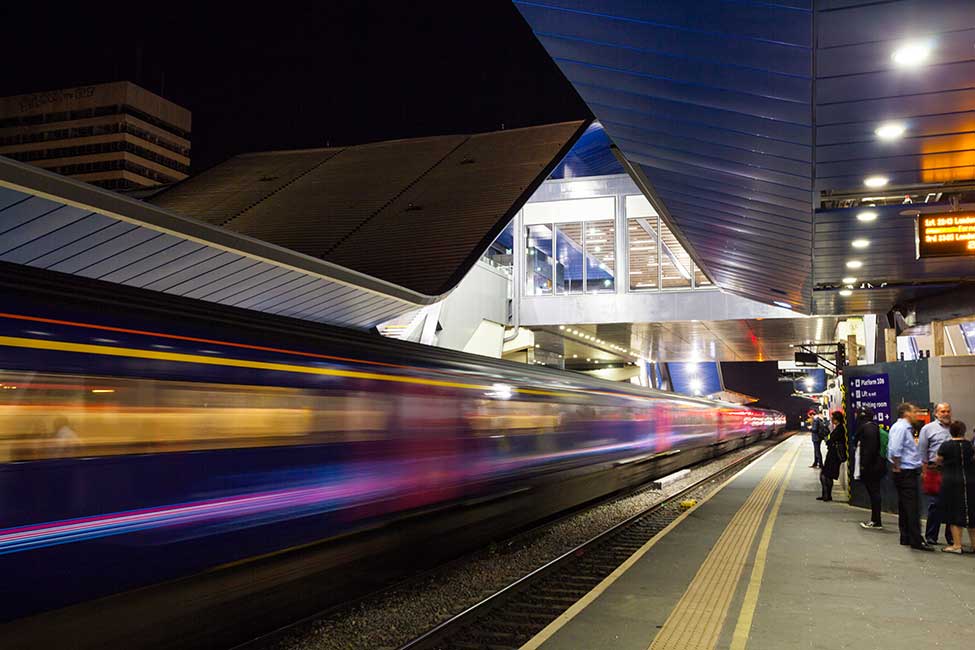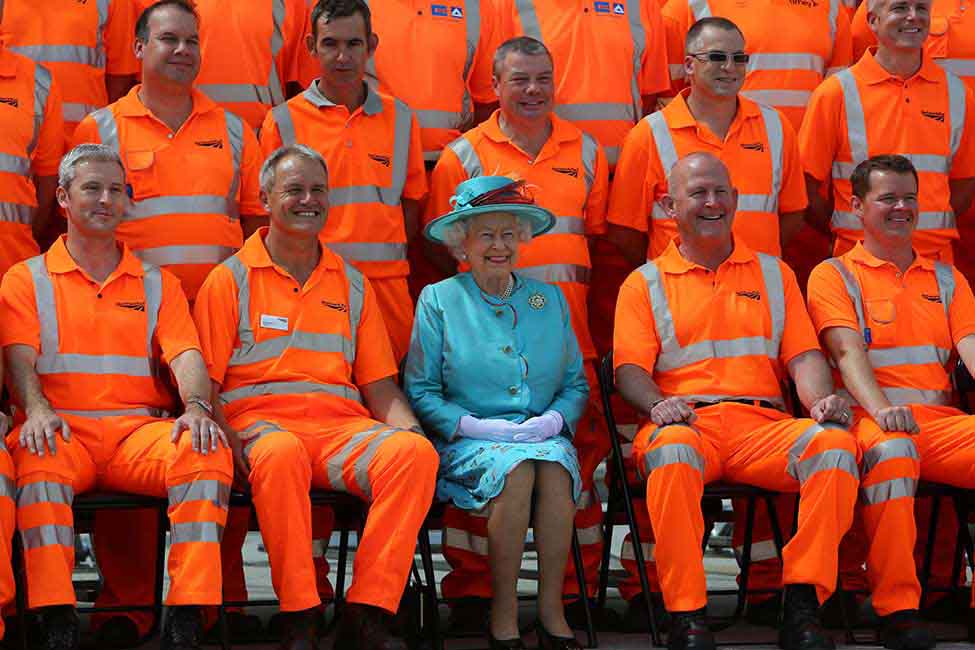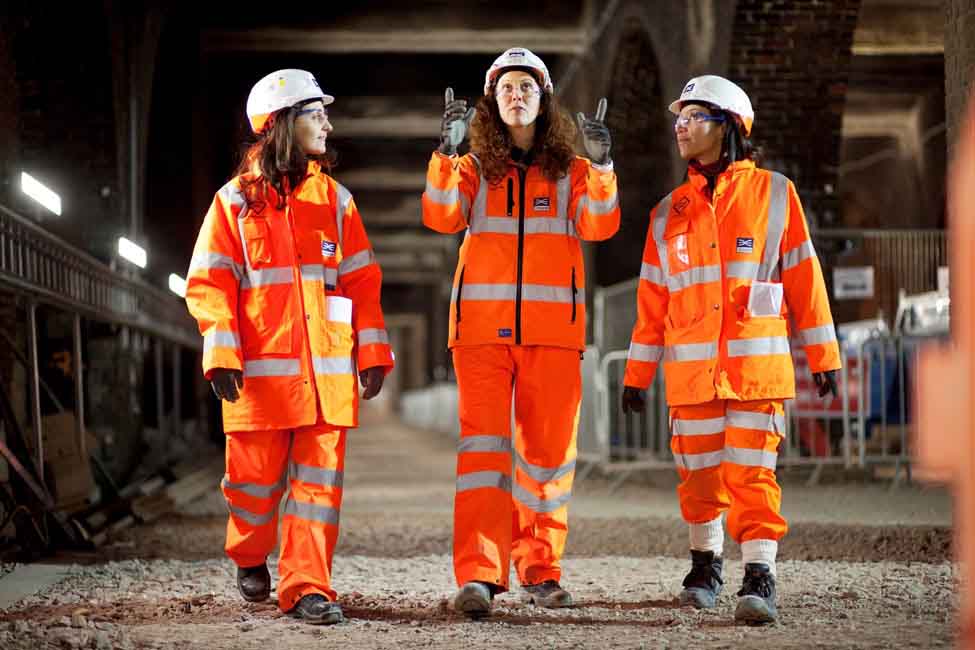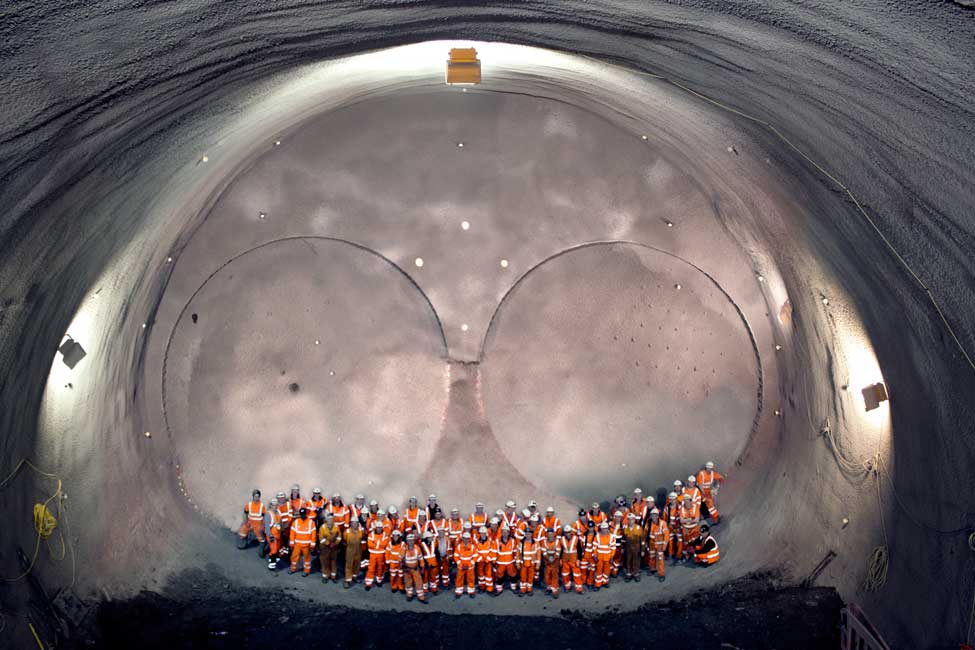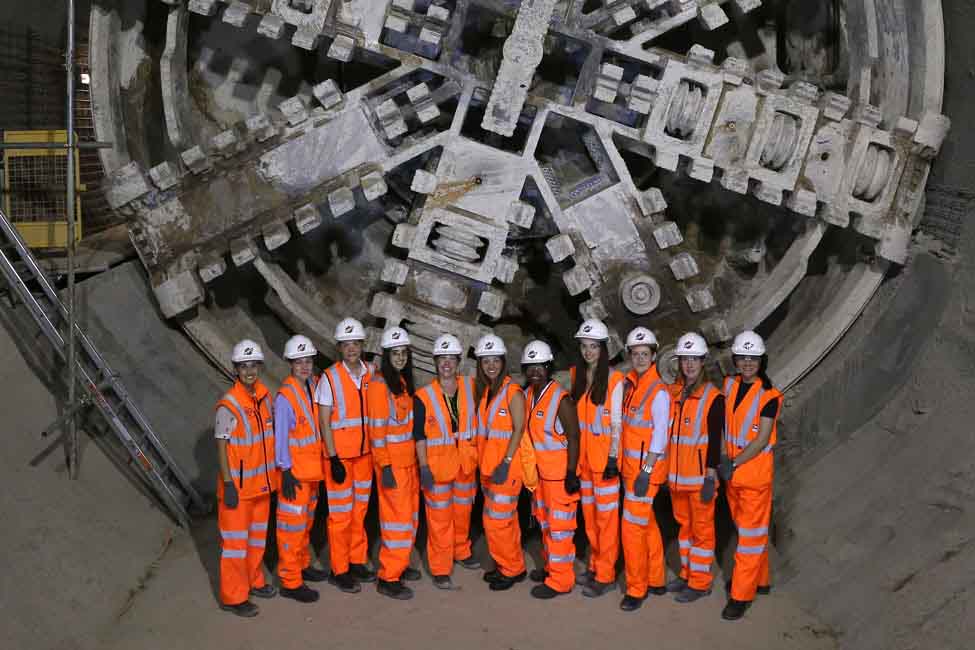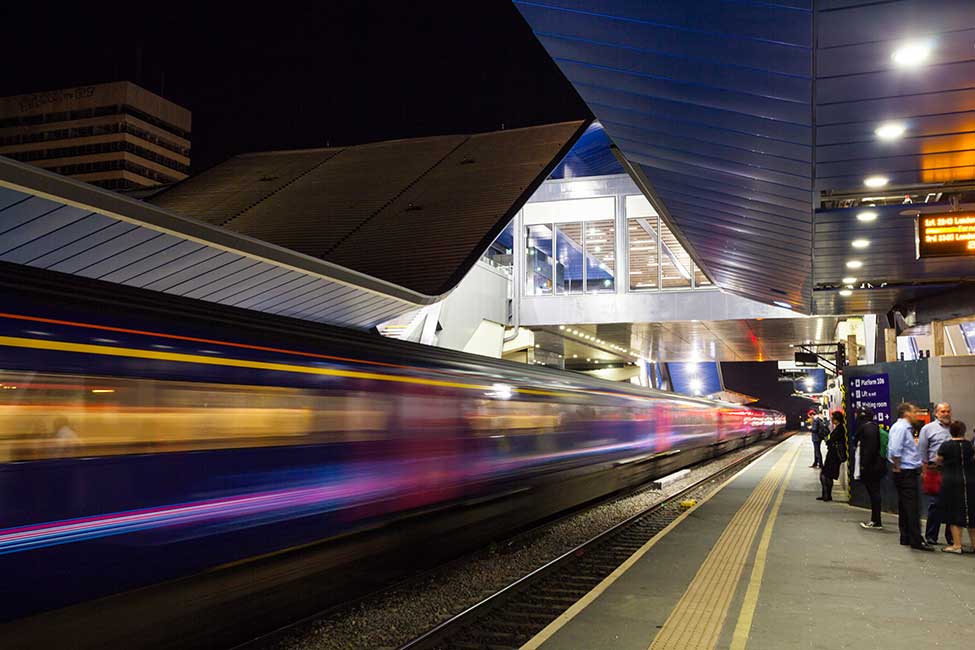Crossrail's Elizabeth Line is Europe's largest construction project – a 100km-plus rail line that will pass through 40 stations, from Heathrow and Reading in the west, to Abbey Wood and Shenfield in the east, via 42km of new tunnels under central London. The railway opened its central section between Paddington and Abbey Wood on May 24, 2022.
Bechtel has been supporting Crossrail's management of the project to deliver the 42km of central tunnels, and eight new subsurface stations.
Network Rail also selected Bechtel as its delivery partner for managing the extensive upgrades to the existing rail network outside London to make it compatible with the new line. Our integrated teams manage the extensive engineering and construction programs to build this much needed new railway.
The new railway is forecast to carry 200m passengers a year, providing a ten percent increase in central London's rail capacity. Not only will it provide more frequent and reliable train journeys for London's growing population, but it will also add an estimated £42bn to the UK's economy.
Project facts
- The Elizabeth line will be London's first full new underground line in more than 30 years
- It will increase by 1.5m the number of people able to travel to central London within 45 minutes
- Crossrail's eight tunnel boring machines, each weighing 1000 tonnes, spent three years burrowing under London to construct 42km of new tunnels.
- The project includes 40 stations served; 8 new subsurface stations, 2 new above-ground stations; 42km of new tunnels; 200 meter-long new trains; and 40 public space improvements around London.
Tunneling overview
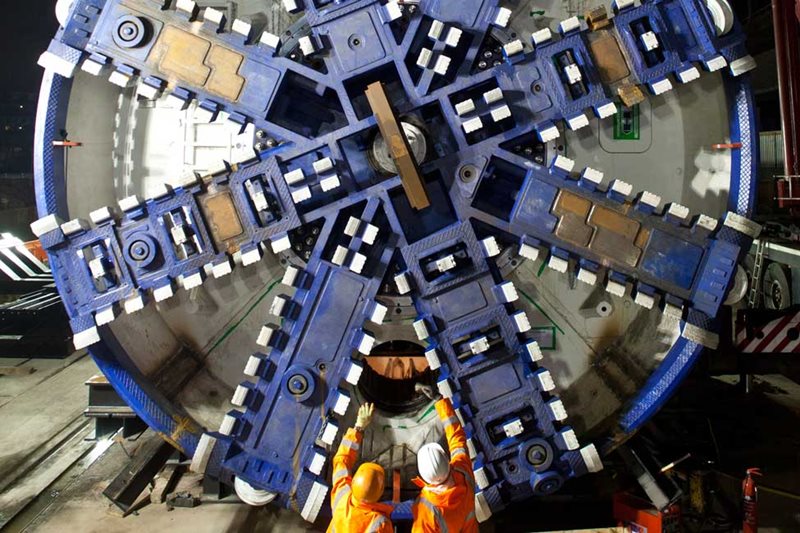
One of the biggest challenges was tunneling. The running tunnels, which were completed in 2015, included 42km of tunnels beneath London. Huge tunnel-boring machines worked around the clock, moving through ground honeycombed with networks of sewer lines, water and gas mains, building foundations and London Underground tunnels dating to the 1860s.
Years of careful study, planning and ground reinforcement efforts minimized the risk of ground settlement affecting buildings and infrastructure above the tunnels. More than 2000 structures above the new twin-bore tunnels running beneath central London were monitored for stability. Major utility relocations also took place across London to protect vital services for residents and businesses.


